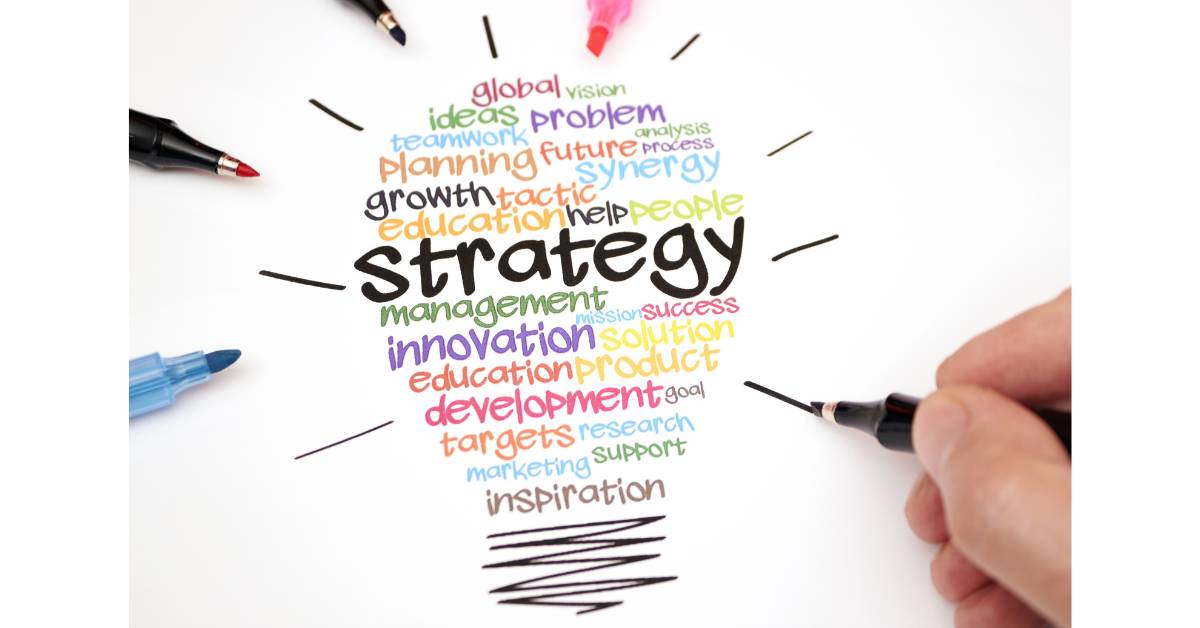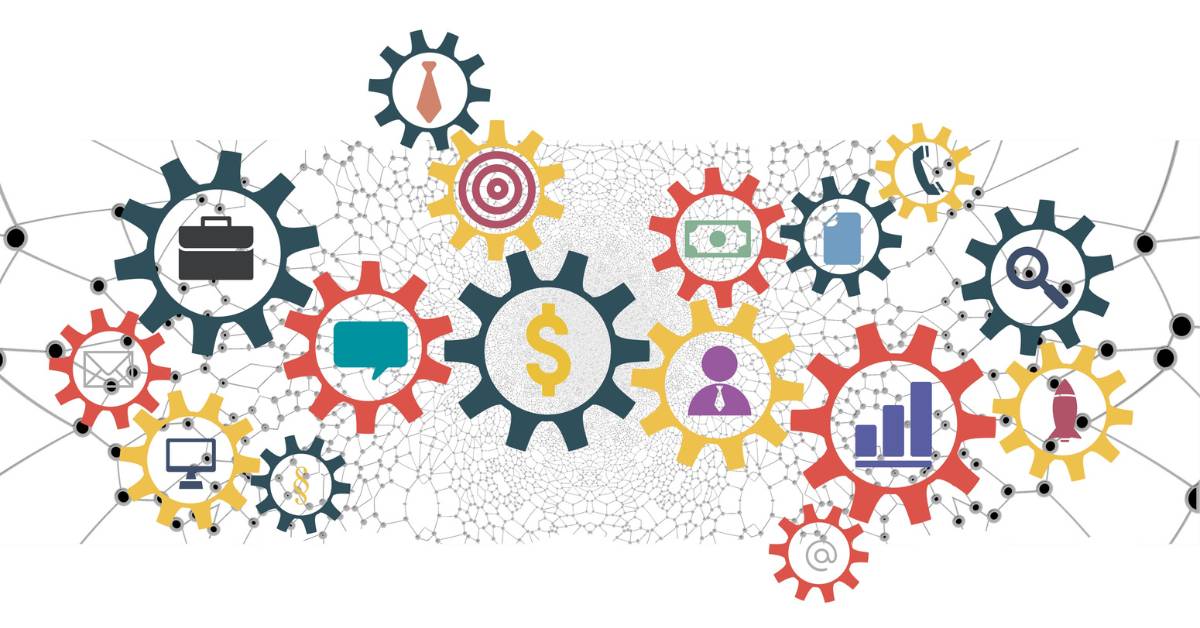Selecting the right Salesforce consulting partner is critical to your success. The right choice results in faster ROI, stronger adoption, and lasting business impact. The wrong one risks missed deadlines, stalled momentum, wasted resources, and frustrated teams. In this guide, we'll share 12 essential factors—along with a practical checklist and tips—to help you avoid costly missteps and choose with confidence.
Introduction: Your Salesforce Consulting Partner is a Critical Factor in Salesforce Success
Choosing the right Salesforce consulting partner is one of the most important decisions you’ll make during your Salesforce journey. While the platform is powerful on its own, realizing its full potential requires both a clear internal vision and the right partner to guide and support that vision.
The right Salesforce consulting partner brings more than technical expertise around Salesforce products. They provide strategic guidance, industry expertise, proven methodologies, and ongoing optimization services that enhance ROI and foster long-term customer success.
They’ll help you align Salesforce solutions with your business goals, integrate them seamlessly with your other systems, and ensure your Salesforce instance grows with you. With this kind of partnership, the payoff is real, including streamlined operations, stronger sales productivity, improved marketing performance, higher customer satisfaction, and substantial cost savings.
But too many Salesforce implementations fall short of this ideal.
Nearly 90% of Salesforce customers rely on consulting partners, and over 70% of implementations are led by certified experts in the Salesforce ecosystem.
Even so, it’s widely known that more than half of CRM projects still underperform. This isn’t because Salesforce lacks capability, but rather due to a poor partner fit, weak planning, or a lack of adoption.
Your Guide to Choosing the Right Salesforce Partner
This guide will provide you with a clear framework to evaluate Salesforce consulting partners with confidence. You’ll discover the pitfalls to avoid, the factors that matter most, and a structured process for comparison.
Our goal is simple: to help you choose a partner who truly fits; one with the right expertise, who works well with your team, delivers meaningful results, and supports your long-term success.
Why Your Salesforce Consulting Partner Matters
The partner you choose directly influences whether Salesforce becomes a growth driver or a stalled investment for your business.
With the right partner, you can achieve:
- Faster ROI: Proven methodologies keep projects on track and deliver measurable results sooner.
- Higher adoption: Processes, dashboards, and training align with how your teams work, so employees use Salesforce with confidence.
- Stronger customer relationships: Integrated sales, service, and marketing data give leaders insights to boost retention and growth.
- Scalable growth: Salesforce solutions evolve with your business, avoiding costly rework and keeping your solutions future-ready.
With the wrong partner, you risk:
- Wasted investment: Misaligned systems frustrate employees and leave licenses unused.
- Budget overruns: Weak project management leads to scope creep and missed milestones.
- Inefficiency: Poor integrations push teams back to spreadsheets and manual work.
- Lost momentum: Leadership confidence fades, and Salesforce stalls as a driver of transformation.
Bottom line
Your partner directly shapes adoption, performance, and business outcomes. The right partner turns Salesforce into a catalyst for growth. The wrong one creates costly setbacks.

Before You Begin: Define Your Business Needs First
Before evaluating Salesforce consulting partners, take the time to clarify what success looks like for your business. The most successful implementations begin with a shared vision: one anchored in measurable business outcomes.
Start by asking yourself:
- Outcomes: What matters most? Shorter sales cycles, improved service response times, streamlined operations, or stronger forecasting?
- Challenges: Which obstacles need to be addressed? Data migration issues, siloed systems, or inconsistent reporting?
- Requirements: What’s non-negotiable? Integrations with ERP or marketing platforms, advanced customization, or support for analytics and marketing campaigns?
Your industry, company size, and unique pain points will shape the type of partner you need. By putting these requirements on paper, you’ll immediately filter out partners who can’t deliver on what matters most.
When you’re clear on your goals, you’re better equipped to select a partner who speaks your language, brings proven solutions to your challenges, and ensures Salesforce aligns with your long-term strategy. That clarity will save you time, avoid missteps, and set your Salesforce investment on the right path from the very beginning.
Overview: Key Factors to Evaluate in a Salesforce Consulting Partner
The best consulting partners don’t just know the Salesforce platform; they know how to translate it into results for your business. The right partner combines deep technical expertise with a business-first mindset, aligning Salesforce products to your industry, goals, and long-term strategy.
When evaluating partners, look beyond Salesforce certifications and customer logos. Focus on how they:
- Understand your industry: Tailor Salesforce to your specific business model, compliance needs, and customer expectations.
- Prove measurable impact: Show a track record of adoption, ROI, efficiency gains, and long-term customer success.
- Guide strategy as well as execution: Provide strategic advisory support and roadmap planning that help you avoid costly missteps.
- Manage projects with discipline: Keep scope, budgets, and timelines under control with clear methodologies.
- Enable seamless integration: Connect Salesforce with ERP, marketing, and other systems to eliminate silos.
- Facilitate change and user adoption: Drive user confidence through training, communication, and structured change management.
- Deliver new and innovative solutions: Apply AI, automation, accelerators, and AppExchange solutions to extend Salesforce’s value.
- Provide references and proof: Provide client stories and references relevant to your size, industry, and challenges.
Bottom Line
The right Salesforce consulting partner balances execution today with vision for tomorrow. They help you capture ROI faster, sustain adoption, and ensure your Salesforce instance becomes a long-term driver of growth—not an underused system.
Now, let’s take a deep dive into 12 key considerations for selecting a Salesforce partner.

1. Relevant Industry Expertise Aligned With Your Business
Industry expertise is one of the most powerful accelerators of Salesforce success. A partner who already understands your regulatory environment, customer expectations, and operating model can significantly shorten the learning curve and start delivering value faster. This reduces costly rework, improves adoption, and ensures Salesforce is designed to create measurable outcomes from day one.
What to Look For and Why It Matters
- Industry Experience That Counts: Partners with real projects in your industry (or similarly complex fields) bring proven playbooks and lessons learned. That means faster execution and fewer rookie mistakes.
- Applied Best Practices: Industry knowledge shapes how Salesforce is configured and integrated. The right partner knows how to approach workflows, customizations, integrations, compliance, and KPIs for your specific context.
- Faster Time-to-Value: Industry-savvy partners don’t need weeks of discovery to understand your business before they begin. They deliver results sooner and help ROI show up faster.
- Smart Balance of Standardization and Customization: The best partners apply tested industry best practices while tailoring Salesforce to your environment. Over-standardization leads to misfit; over-customization leads to unnecessary complexity.
Your Move
When assessing industry expertise, push for evidence. Ask for case studies and references from your sector and listen for whether they talk in your industry’s language—or only in Salesforce jargon. A partner fluent in your industry will cut through trial and error, speed time-to-value, and deliver solutions that move the needle.
2. Depth and Breadth of Technical Expertise and Salesforce Certifications
Technical expertise provides the foundation for a Salesforce project, but certifications alone don’t guarantee results. The right partner combines certified skills with the ability to architect, configure, and integrate Salesforce to meet complex business needs. Without this, projects run into errors, delays, and gaps that frustrate both leadership and end users.
What to Look For and Why It Matters
- Salesforce Summit-Tier Partner Status: The Summit tier is the highest designation in the Salesforce partner program, reserved for the top 1% of partners globally. These firms don’t just bring certifications and experience—they stay current with Salesforce’s newest features, releases, and best practices. Choosing a Summit Salesforce partner ensures your implementation is both technically sound today and continuously optimized for the future.
- Depth, Not Just Volume, of Certifications: Ask which certifications the team holds, and how they apply directly to your needs (e.g., Sales Cloud, Service Cloud, Marketing Cloud, Industries). A badge count without relevance doesn’t add value.
- Cross-Cloud Capabilities: Many organizations require Salesforce across multiple functions. Look for partners who can connect the dots across clouds instead of operating in silos.
- Integration Expertise: Salesforce rarely operates in isolation. Strong partners know how to integrate your Salesforce instance with ERP, marketing automation systems, customer service platforms, and third-party apps—ensuring data flows seamlessly.
- Strategic Advisory Skills: Purely technical delivery isn’t enough. The strongest partners advise on process design, governance, and change management to ensure Salesforce actually drives business outcomes.
- Deep knowledge of the extended Salesforce ecosystem: Tableau, Slack, Mulesoft, and the thousands of ISV Apps on the AppExchange
Your Move
Don’t stop at asking about the number of Salesforce certifications or how many certified consultants they have on staff. Ask how those credentials translate into results for clients like you. Ask for examples of integrations, cross-cloud projects, or custom solutions that solved real business problems. A true expert won’t just show credentials; they’ll show how those skills translate into ROI for companies like yours.
3. A Strategic Partnership Mindset, Not Just Implementation Support
The best Salesforce consulting partners don’t view your project as a one-and-done implementation. They act as long-term advisors, aligning Salesforce with your business strategy, protecting the health of your Salesforce platform, and ensuring it evolves as your company grows. With this type of partnership, Salesforce can become a true driver of growth and innovation.
What to Look For and Why It Matters
- Strategic Roadmap and Advisory: The right partner helps you plan beyond launch, creating and updating a Salesforce roadmap that supports your long-term business strategy.
- Health and Security Oversight: They conduct regular health checks, monitor for risks, and independently validate projects to prevent costly missteps and ensure your environment remains secure and optimized.
- Continuous Optimization: Strong partners provide Salesforce managed services that go beyond fixing issues. They help you take advantage of Salesforce’s frequent releases, refine workflows, and roll out new features, ensuring your system evolves in tandem with your business.
- Innovation and Thought Leadership: A strategic partner brings insights into Salesforce trends, AI, automation, and industry best practices that keep you a step ahead of competitors.
Bottom line
A strategic partner protects your Salesforce investment, helps you adapt as your business changes, and keeps the platform delivering measurable value year after year.
Your Move
Don’t settle for a partner who only implements Salesforce. Ask how they support continuous improvement, platform health, and strategic decision-making. Request references who can speak to their long-term partnership value, not just launch-day success.
A true strategic Salesforce partner will protect your investment, maximize ROI, and keep the platform aligned with your business goals year after year.

4. A Proven Track Record of Delivering Measurable Results
When it comes to choosing a Salesforce consulting partner, vague promises aren’t enough. The best predictor of future success is proven results: clear metrics, credible references, and client stories that demonstrate sustained business impact. Without this proof, you risk investing in a partner who learns on your dime.
What to Look For and Why It Matters
- Measurable Outcomes: Look for case studies across a range of Salesforce solutions that include metrics around process improvements, sales and marketing results, and user adoption—not just broad success stories.
- Relevant References: Prioritize references from organizations similar to yours in size, complexity, or industry. A familiar playbook reduces risk and speeds value.
- Long-Term Relationships: Partners with multi-year client engagements demonstrate they can deliver sustained results and adapt Salesforce as needs evolve.
- Transparency: A credible partner is candid about past challenges and how they resolved them—showing resilience and accountability.
Your Move
Don’t settle for polished stories. Ask for metrics, talk to references, and probe into projects that weren’t necessarily flawless. A Salesforce partner who can prove measurable results, adapt through challenges, and sustain long-term value will be far more valuable than one who only shows highlight reels.
5. Cultural Fit, Communication Style and Collaboration Approach
Even the most technically flawless Salesforce implementation can fail if your consulting partner doesn’t work well with your people. Success depends as much on collaboration, communication, and cultural alignment as it does on code. The right Salesforce partner integrates seamlessly with your team, acting as an extension of your business rather than an outside vendor. Without this fit, projects stall, adoption suffers, and trust erodes.
What to Look For and Why It Matters
- True Partnership Mindset: The right Salesforce consulting partner invests in understanding your business and treats the engagement as a shared journey, not a transactional project. This fosters trust and ensures solutions are designed with your goals in mind.
- Clear and Transparent Communication: Look for partners who speak in plain language, avoid jargon, and keep executives and end users aligned with structured updates.
- Responsiveness and Proactivity: Timely follow-up and proactive problem-solving keep projects on track and build confidence. A Salesforce partner who anticipates issues before they escalate is invaluable.
- Active Listening and Business Understanding: A great partner listens first, learns your “why,” and uses that context to design smarter solutions that address root causes—not just symptoms.
- Knowledge Transfer and Empowerment: The best partners leave your team stronger, training your staff to manage and evolve Salesforce over time rather than keeping you dependent on them.
Your Move
Watch closely during early conversations. Do they listen more than they pitch? Do they explain complex topics clearly? Are they responsive? Ask for references that highlight collaboration, responsiveness, and cultural alignment.
A Salesforce partner who communicates openly, collaborates seamlessly, and empowers your team won’t just deliver a project—they’ll set your organization up for sustainable success.

6. Thorough Discovery and Solution Design Process
A Salesforce partner’s discovery and solution design process sets the foundation for everything that follows. If they rush this phase or rely on generic templates, you’ll end up with a system that looks good on paper but fails to meet real business needs. A thoughtful approach ensures Salesforce is tailored to your processes, data, and goals—not the other way around.
What to Look For and Why It Matters
- Thorough Discovery: Strong partners don’t just gather requirements; they uncover pain points, workflows, and success metrics across teams. This prevents costly rework later. A thoughtful discovery process can also reveal opportunities to extend Salesforce to enhance workflows and harmonize data.
- Business-First Design: Strong partners translate technical capabilities into outcomes like faster revenue growth, higher efficiency, improved compliance, and better customer experiences.
- Collaborative Workshops: Look for structured design sessions where stakeholders can validate requirements and envision processes together. This ensures alignment and reduces resistance.
- Future-Proofing: A scalable design anticipates growth and change, so you don’t outgrow Salesforce or face another reimplementation in 18 months.
Your Move
Don’t accept a quick checklist or one-size-fits-all template. Demand a discovery and solution design process that digs deep into your business, engages your stakeholders, and ties Salesforce directly to measurable outcomes.
7. Structured Implementation and Project Management Methodology
Even the best technical expertise can’t save a poorly managed project. A partner’s approach determines whether milestones are met, risks are contained, and budgets stay on track. Weak discipline here leads to delays, scope creep, and a loss of leadership confidence.
A successful Salesforce project isn’t just about when it gets done; it’s also about how it gets done. The right partner brings both a clear implementation approach and a disciplined project management methodology, ensuring Salesforce drives ROI from the start and scales with you over time.
What to Look For and Why It Matters
Implementation Approach (The Core of Success):
- Configuration Before Customization: Strong partners prioritize scalable configuration over heavy coding, reducing long-term risk.
- Data Migration Strategy: Clean, accurate migration is one of the most common failure points. Look for a proven, documented process.
- Integration Expertise: Expect seamless connections to ERP, marketing, and third-party apps, without brittle dependencies.
- Adoption Built In: Implementation should include training, change management, and workflows tailored to how your teams work.
- Scalability and Future-Proofing: The system should be designed to grow with you, not force another reimplementation in 18 months.
Project Management Methodology (How the Work Stays on Track):
- Framework and Cadence: Whether Agile, hybrid, or waterfall, partners should explain how they run sprints, demos, and executive check-ins.
- Risk Management: Confirm their process for identifying and mitigating risks before they hit budgets or timelines.
- Transparency and Reporting: Expect clear visibility into progress, scope, budget, and key decisions.
- Governance and Accountability: Clarify how decisions are made, escalated, and aligned with your business goals.
Your Move
Don’t settle for generic responses. Ask for real examples of their implementation playbook and project management cadence, and look for evidence that they’ve delivered scalable, well-adopted solutions for companies like yours.

8. Commitment to User Adoption, Training and Change Management
Even the most technically sound Salesforce system fails without strong adoption. The ultimate success of your investment depends on whether employees embrace the platform, understand its value, and adapt to new ways of working. A leading Salesforce consulting partner knows this isn’t about flipping a switch; it’s about preparing people, supporting them through change, and empowering them for the long term.
What to Look For and Why It Matters
- Adoption Strategy Built In: Adoption shouldn’t be an afterthought. The right partner integrates adoption into the project plan, with structured onboarding, role-based training, and executive engagement from the start. This accelerates usage and ROI.
- Comprehensive Change Management: Change is difficult, and resistance is normal. Partners with clear communication plans and phased rollouts help teams adapt more smoothly and reduce disruption.
- Tailored Salesforce Training Programs: Generic training rarely sticks. Look for role-specific, hands-on training designed around your actual processes, whether for frontline staff, power users, or administrators.
- Structured Knowledge Transfer: The best partners leave your team stronger, not dependent. They provide documentation, workshops, and mentoring so your staff can manage and evolve Salesforce over time.
- Post-Go-Live Support: Questions and hiccups don’t end at launch. Partners who provide responsive, ongoing support maintain user confidence and keep momentum going.
Your Move
Ask about rollout and training examples from past projects. Talk to references about how quickly their teams embraced Salesforce and how well they were supported after launch. Pay attention to whether potential partners emphasize users as much as they emphasize features. A partner who prioritizes people as much as technology will turn Salesforce into a business-critical tool your teams rely on—not a system they work around.

9. Ongoing Support, Optimization, and Managed Services
Salesforce success isn’t defined at go-live; it’s measured in how well the platform continues to deliver business value over time. Without structured support and proactive optimization, adoption declines, issues accumulate, and ROI fades over time. The right partner doesn’t walk away after launch; they stay engaged to ensure Salesforce evolves with your business, scales with your growth, and continues to deliver measurable results.
What to Look For and Why It Matters
- Post-Go-Live Strategy: Strong partners map out an optimization plan beyond launch, ensuring Salesforce grows with your business instead of stalling after the initial rollout.
- Comprehensive Salesforce Managed Services Offering: Look for structured offerings that include monitoring, quick fixes, enhancements, and proactive recommendations, not just “break/fix” support.
- Ongoing User Support and Training: Teams change, new hires join, and Salesforce adds features. Continuous training and enablement keep adoption high and knowledge fresh.
- Future-Focused Evolution: Partners should keep you ahead of Salesforce’s three annual releases, as well as emerging innovations in AI and automation, so your platform never falls behind.
Your Move
Don’t accept vague promises of “ongoing support.” Ask for specifics: service levels, response times, release management strategies, and examples of continuous improvements they’ve delivered. A true partner doesn’t just maintain Salesforce; they ensure it continues to grow in value year after year.
10. Expertise in AI, Automation, and Emerging Salesforce Capabilities
AI and automation are no longer optional capabilities; they’re critical to unlocking Salesforce’s full value. From smarter forecasting with Einstein to faster case resolution with Agentforce and workflow automation, the right partner knows how to turn Salesforce’s most advanced capabilities into tangible business results.
A partner who stays ahead of these innovations will help you increase efficiency, improve decision-making, and deliver more personalized customer experiences.
What to Look For and Why It Matters
- Practical AI Use Cases: Ask for examples where the partner has applied Salesforce AI, Agentforce, or automation capabilities to deliver measurable outcomes such as revenue growth, faster service, or reduced costs.
- Process Mapping Expertise: Successful automation requires a deep understanding of workflows and redesigning them to eliminate friction.
- Future Readiness: With Salesforce rapidly advancing its AI and automation capabilities, the right partner will proactively guide you on where and how to apply them next.
- Business Value Focus: The best partners frame AI and automation in terms of business impact, not hype. Look for those who tie every initiative to clear outcomes and measurable ROI.
Your Move
When evaluating partners, don’t get lost in buzzwords. Ask for specific examples of AI or automation projects, what they delivered, and how the impact was measured. Partners who can connect AI to business results—not just features—will set you up for long-term advantage.

11. Relevant Client References and Success Stories
The best Salesforce consulting partners don’t just talk about results; they prove them. Client references, Salesforce case studies, AppExchange presence, and testimonials provide tangible evidence of how a partner performs in real-world scenarios. They reveal whether the partner consistently drives ROI, solves complex challenges, and builds lasting relationships that stand the test of time.
What to Look For and Why It Matters
- Outcome-Oriented Case Studies: Look for metrics (e.g., faster adoption, improved efficiency, revenue gains) that show real impact, not just “we delivered.”
- Relevant References: Ask for clients in your industry, of similar size, or with similar challenges, not just big-name logos.
- Transparency: The strongest partners share not only wins but also how they overcame obstacles, showing resilience and accountability.
- Repeat Clients: When clients return for multiple projects, it signals satisfaction, trust, and long-term value.
- Verified Testimonials: Consistent, authentic feedback on delivery, collaboration, and results builds confidence.
- AppExchange Presence: Partners with published accelerators or solutions often speed up implementation and reduce costs.
Your Move
Don’t stop at the number of reviews or star ratings. Ask for real metrics, speak directly with references who mirror your business, and dig into how the partner handled bumps along the way. The way a partner talks about challenges and the loyalty of their clients over time reveals more about their true value than any polished marketing materials ever will.
12. Value-Added Salesforce Accelerators, Frameworks and Innovations
In Salesforce implementations, speed and efficiency matter. The best partners don’t reinvent the wheel for every project; they bring proven accelerators, pre-built solutions, and innovative methodologies that shorten timelines, reduce risk, and help you achieve value faster.
At the same time, they enable you to be future-ready by tracking emerging Salesforce features, industry best practices, and innovative technologies.
The result: a solution that delivers immediate wins while setting your business up for long-term competitive advantage.
What to Look For and Why It Matters
- Proven Salesforce Accelerators and Quickstarts: Top Salesforce partners leverage pre-built accelerators and Quickstarts for core Salesforce clouds and/or common industry use cases. This reduces development time, lowers cost, and builds on configurations that are already tested and trusted.
- Industry-Specific Solutions: Partners with deep industry expertise often bring pre-configured solutions, best practices, or playbooks tailored to your sector’s unique processes and regulatory requirements.
- Intellectual Property and Tools: Partners who invest in their own IP (custom apps, connectors, or specialized accelerators) demonstrate innovation and a commitment to delivering unique value beyond standard Salesforce functionality.
- Future-Focused Advisory: The right partner doesn’t just address your needs today; they help you anticipate tomorrow. They bring thought leadership, insights on emerging Salesforce features, and a plan for how your instance will evolve with the platform.
Your Move
During evaluations, ask partners to show examples of how their accelerators or innovative methods have cut timelines, lowered costs, or unlocked unique value for other clients. The strongest partners strike a balance between speed and foresight, delivering quick wins today while positioning your business to capitalize on tomorrow’s Salesforce capabilities.

Summary: Pitfalls to Avoid When Choosing a Salesforce Partner
Even with the best intentions, many companies fall into predictable traps when selecting a Salesforce partner. These missteps can derail timelines, inflate budgets, and leave Salesforce underutilized. By knowing what to avoid, you’ll protect your investment and set your team up for success.
| Key Area | Pitfall to Avoid | Negative Impact |
|---|---|---|
Industry Experience | Choosing a partner with no relevant industry background | Leads to generic solutions that don’t fit your processes, slowing adoption and increasing rework. |
Salesforce Expertise & Certifications | Focusing only on badge count, not relevance | Risks include technical gaps, poor design, and stalled projects. |
Partnership Mindset | Hiring a vendor that only “implements” | Creates a transactional relationship—no strategic guidance or long-term ROI. |
Proven Results | Ignoring track record and measurable outcomes | Makes you vulnerable to overpromises, missed milestones, and disappointment. |
Cultural & Communication Fit | Overlooking collaboration style | Poor communication slows projects, breeds frustration, and reduces user buy-in. |
Discovery & Solution Design | Rushing or skipping discovery | Results in misaligned solutions that don’t solve real business problems, causing costly fixes later. |
Implementation & Project Management | Weak methodology or lack of governance | Increases scope creep, missed deadlines, and budget overruns. |
Adoption & Change Management | Treating adoption as an afterthought | Leaves you with a system no one uses, wasting the entire investment. |
Ongoing Support | No plan for post-go-live optimization | Salesforce quickly becomes outdated and underutilized. |
AI & Emerging Capabilities | Ignoring AI, automation, and new Salesforce tools | Keeps you behind competitors who are leveraging innovation. |
Client References | Failing to check relevant references | You may choose a partner who can talk but not deliver. |
Accelerators & Innovations | Overlooking pre-built frameworks and tools | Slows time-to-value and misses opportunities for efficiency. |
Your Move
Use this list as a red flag checklist during evaluations. If a partner glosses over discovery, downplays adoption, or can’t back up claims with client outcomes, consider it a warning sign. The right partner won’t just avoid these pitfalls; they’ll show you how they proactively prevent them.
Additional Tips for a Strong Salesforce Partner Selection Process
Even with the right evaluation criteria, how you run the process itself can determine whether you make the right choice. Many companies still stumble because they rush, focus too heavily on price, or let internal misalignment undermine the decision. These process-focused tips complement the 12 key considerations and help ensure your selection is both disciplined and effective.
Key Actions to Take During Evaluation
- Define measurable business outcomes upfront: Before reviewing partners, anchor the process in specific desired outcomes like shorter sales cycles, higher customer retention, or reduced service costs. This keeps evaluations focused on business impact, not features.
- Engage stakeholders early and often: Don’t wait until final partner discussions to bring in members of your sales, service, IT, and leadership teams. Involve them early to co-create requirements, then validate alignment at each step. This avoids conflicts and builds internal buy-in.
- Balance speed with rigor: Long processes stall momentum, but rushing creates blind spots. Set a structured but time-bound evaluation with clear milestones for shortlisting, demos, and references.
- Use real-world scenarios in evaluations: Instead of a generic Salesforce discussion, ask about specific scenarios and workflows, such as “How would you streamline lead handoffs between sales and service?” This surfaces how they think, not just what they sell.
- Evaluate value and risk, not just cost: Cheap proposals often balloon into overruns. Ask each partner to outline risk factors, governance processes, and time-to-value, then weigh these against pricing.
- Assess communication and cultural fit live: Notice how partners interact during the process: Do they listen more than they pitch? Are they transparent about challenges? These behaviors often predict the project experience.
Using These Tips
Use these tips as the “guardrails” of your selection process. By grounding evaluations in outcomes, structuring timelines, testing with real scenarios, and balancing cost with risk, you’ll avoid common traps and select a partner who delivers real results—fast and sustainably.
For more insights on ensuring Salesforce implementation success, check out our post, "10 Critical Mistakes that Can Derail Your Salesforce Implementation (And How to Avoid Them)."
Conclusion: Building a Future-Ready Salesforce Partnership
Choosing the right Salesforce consulting partner is a business growth decision. The difference between a CRM project that flounders and one that drives measurable ROI often comes down to the partner you trust.
The strongest partners configure Salesforce with precision, act as strategic advisors who understand your industry, align with your culture, and bring proven frameworks that keep projects on track. With the right guidance, Salesforce becomes more than a platform; it becomes a growth engine that accelerates adoption, boosts efficiency, and scales as your company grows.
This guide is designed to help you evaluate partners with rigor. Focus on expertise, cultural alignment, transparency, and a clear plan for adoption and innovation. When these elements are in place, you don’t just get an implementation; you gain a partner who drives impact today and positions you for long-term success.
How Summit Can Help
At Summit, we’ve helped companies across industries align Salesforce with their business strategies—driving stronger adoption, measurable ROI, and sustainable growth. If you’re considering your next step, let’s explore together whether we’re the right Salesforce consulting partner to help you unlock that value. Connect with one of our experts today.

Salesforce Implementation Frequently Asked Questions
What Is a Salesforce Implementation?
A Salesforce implementation is the process of setting up and customizing Salesforce CRM to meet your organization’s unique needs. To implement Salesforce properly, steps include planning, configuration, data migration, integration with other systems, user training, and ongoing optimization.
When done right, a Salesforce CRM implementation can transform how your business operates, enhancing sales performance, improving customer service, and giving leadership visibility into performance. When done wrong, it can stall momentum, waste budget, and create long-term headaches.



























